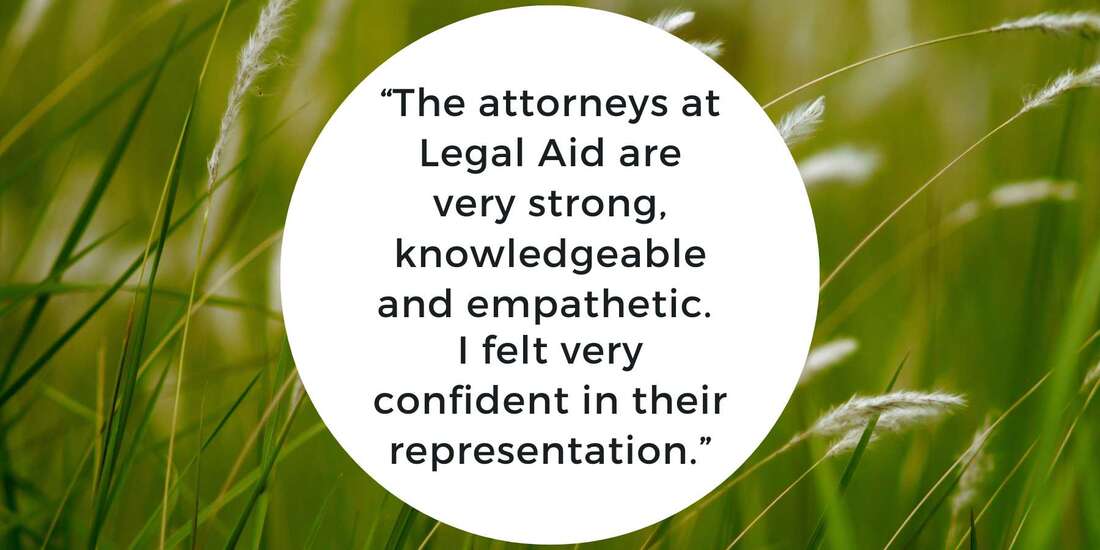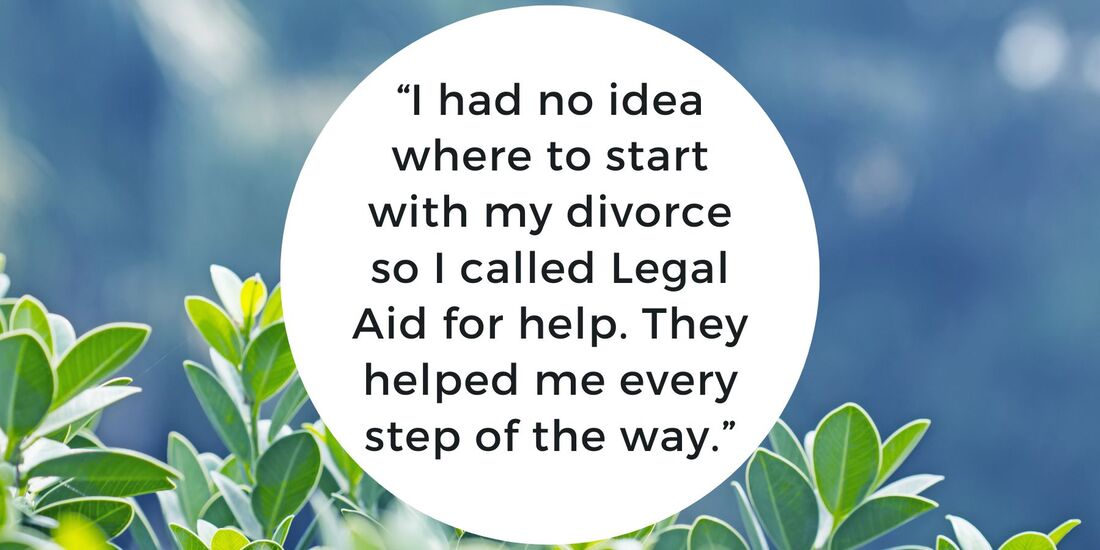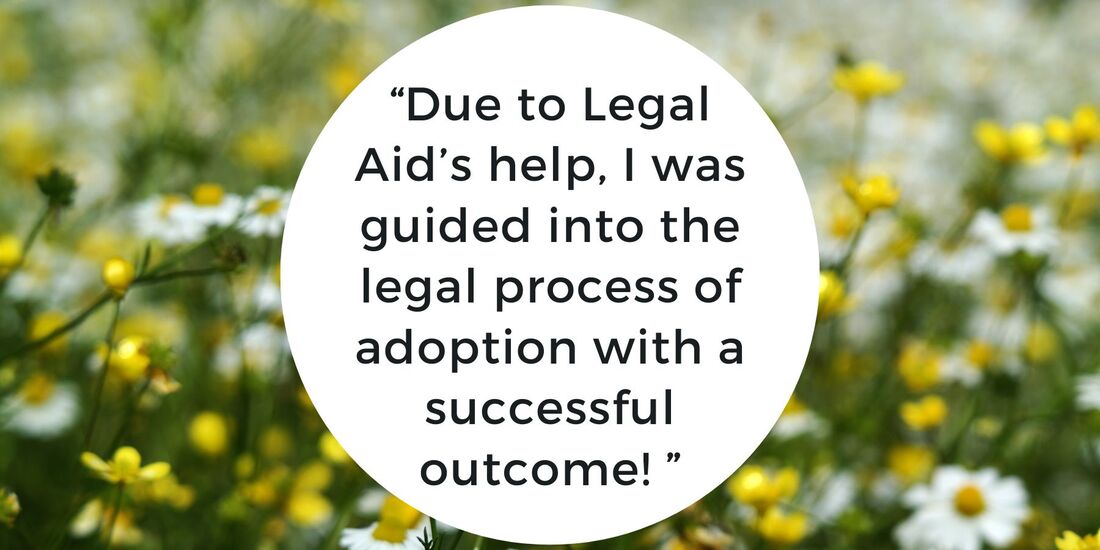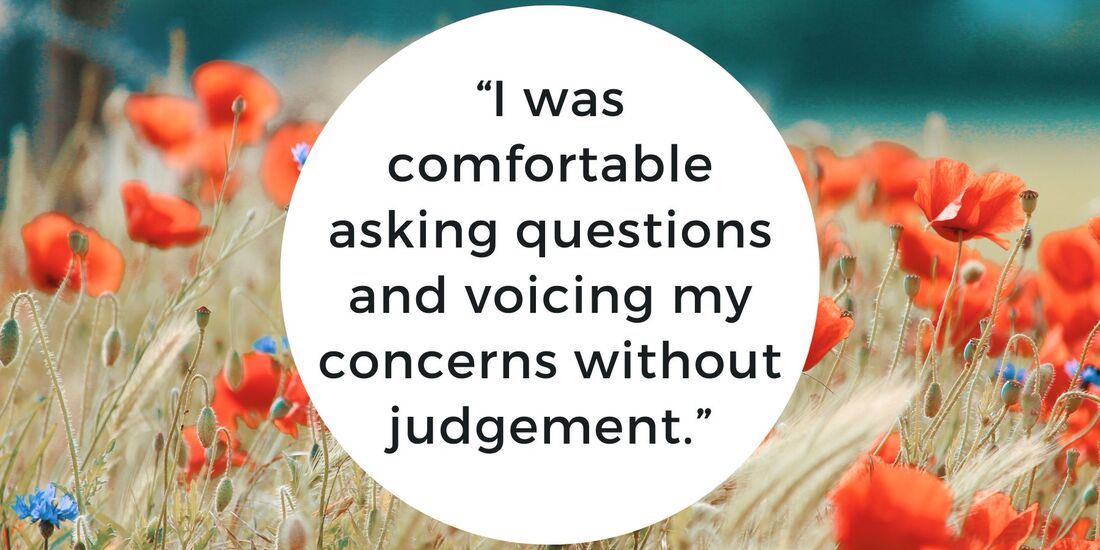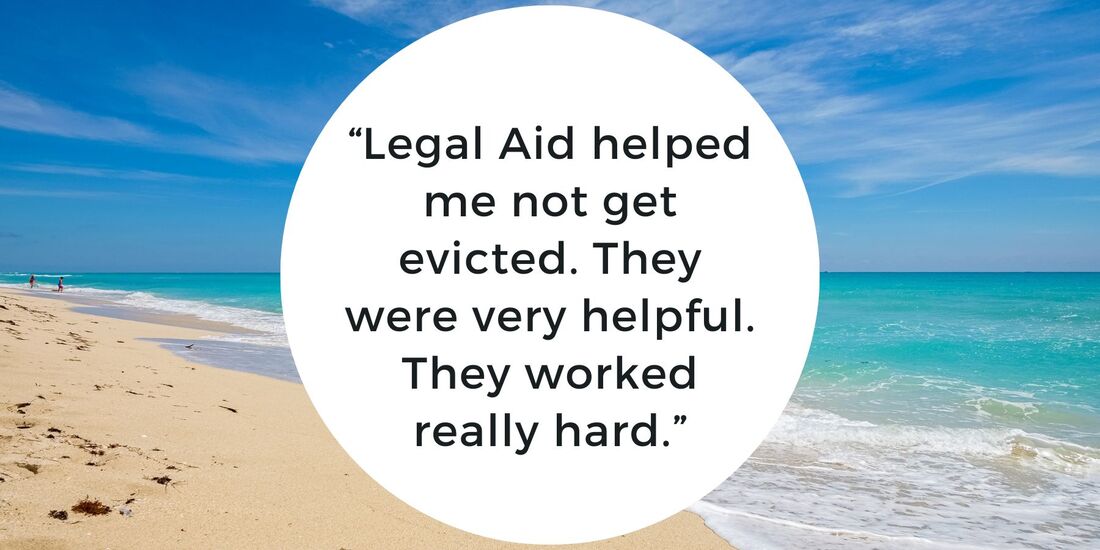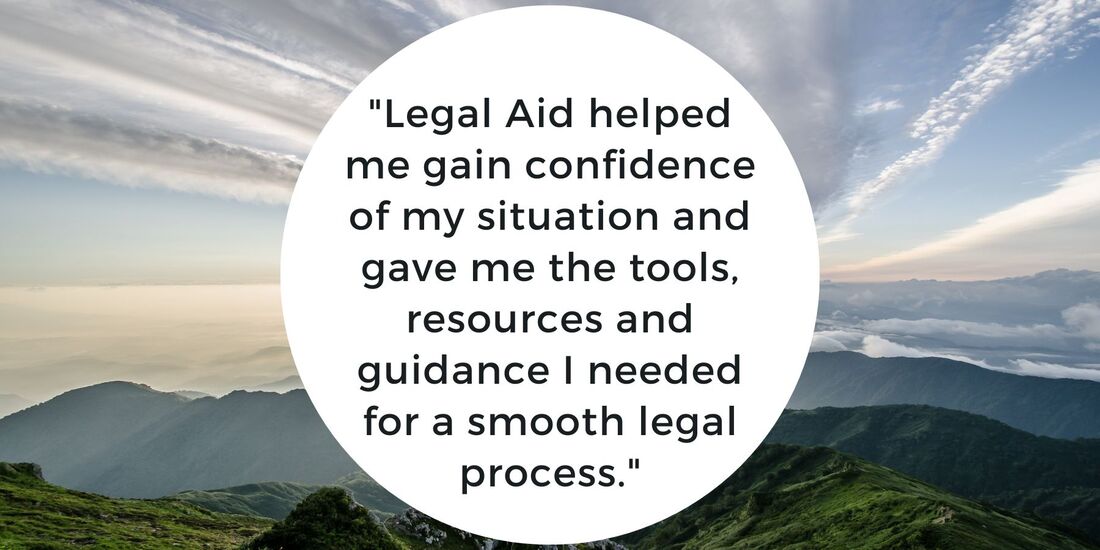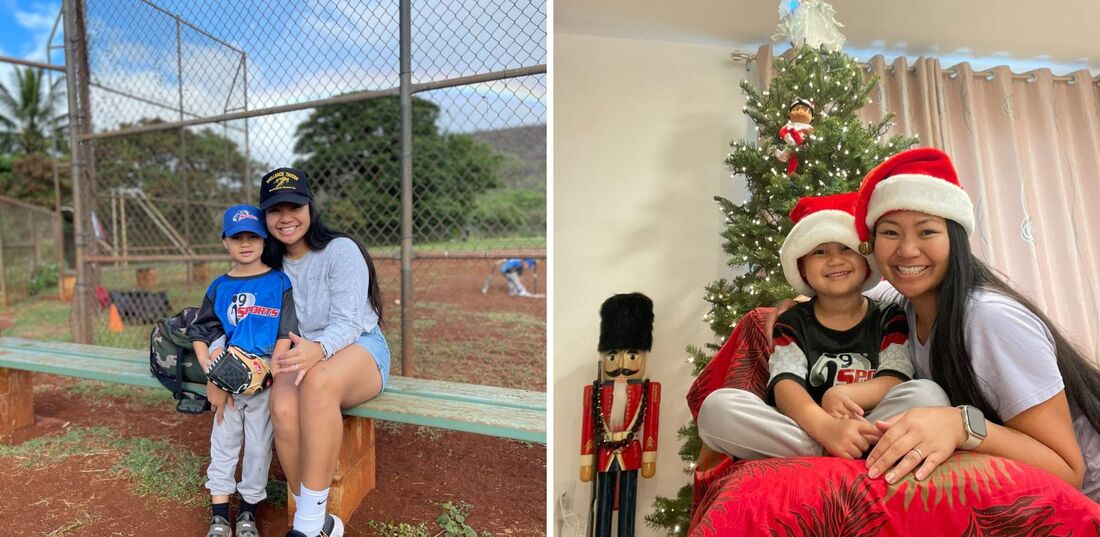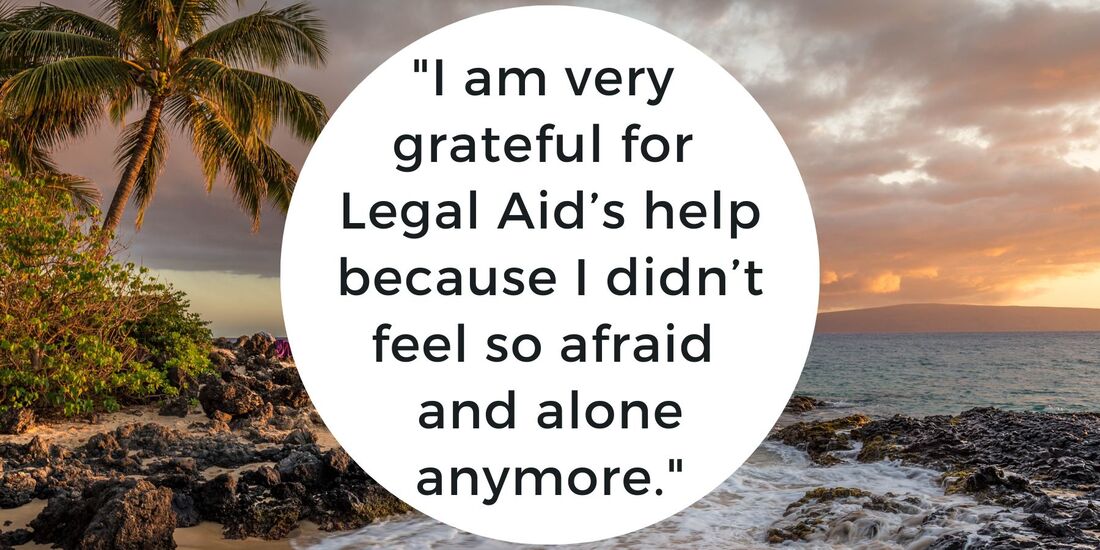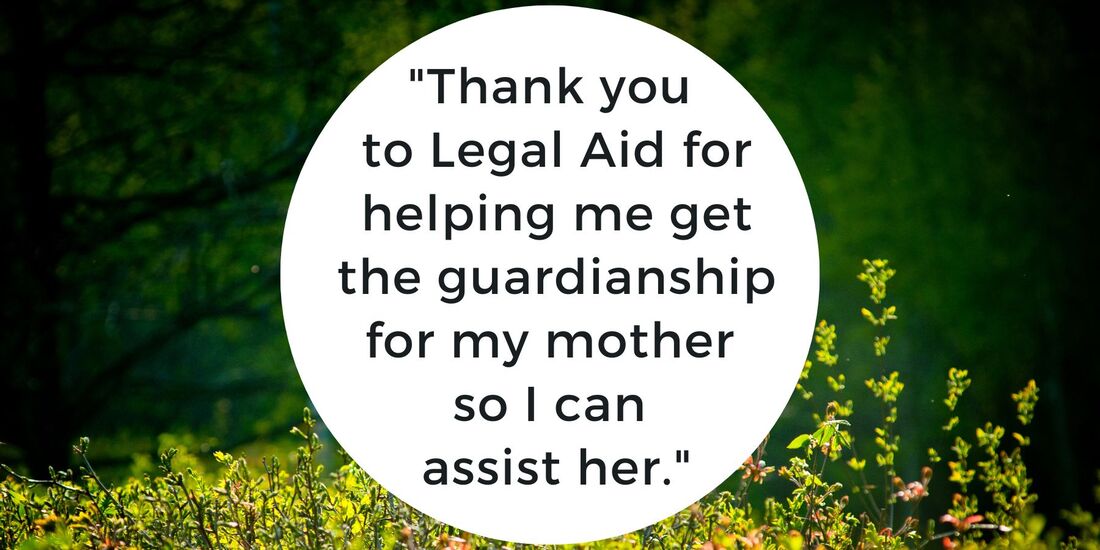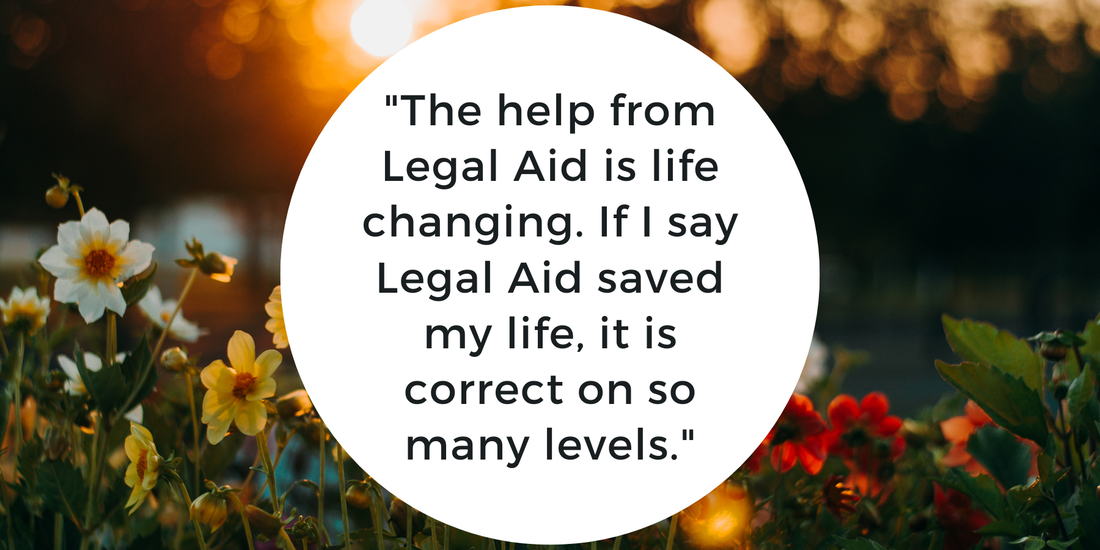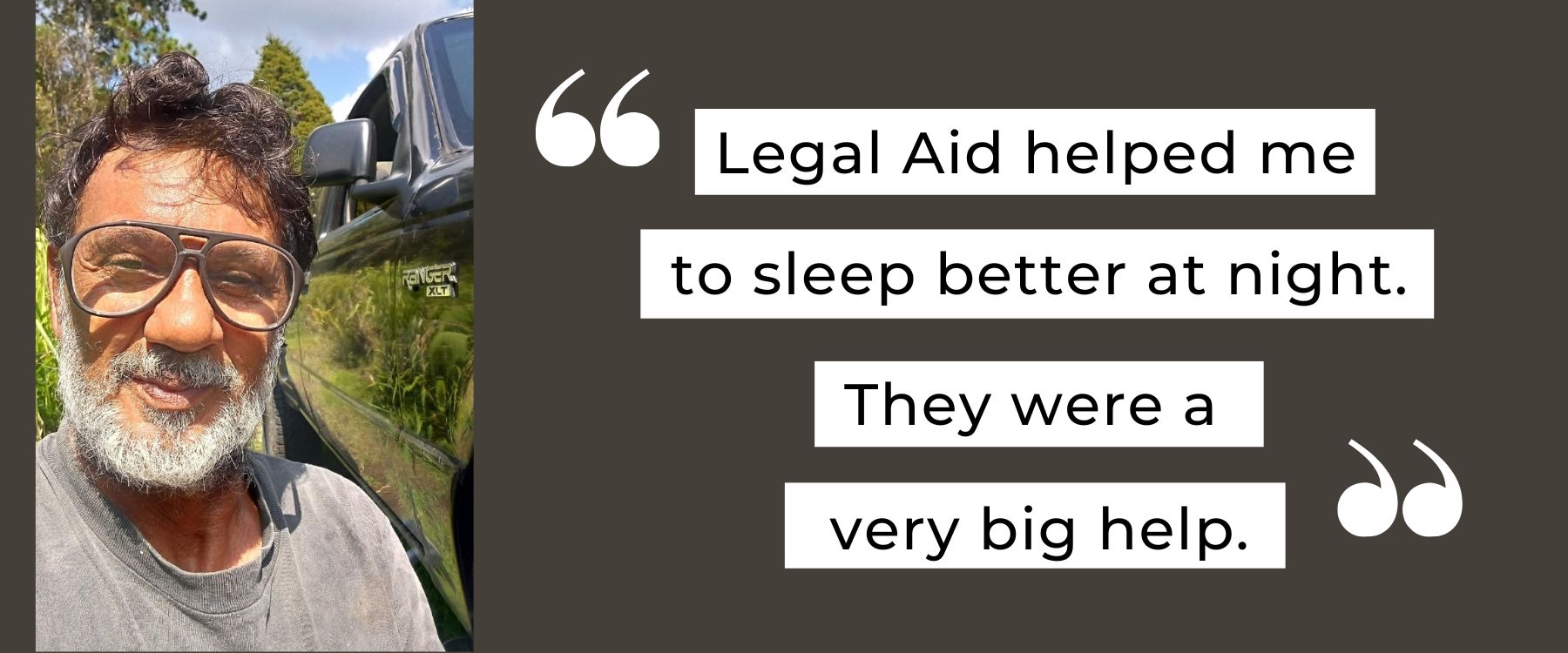|
*Keilani’s neighbor, who had moved into the neighborhood in 2007, constantly complained about her daughter’s boyfriend, the family dog, and Keilani’s son *Jordan.
“I tried talking, but I couldn’t seem to reason with him,” said Keilani. “He continued with his accusations. He’s just an awful person.” Through the years, police responded multiple times, each time confirming that there was no evidence for the complaints. Keilani managed to handle the false accusations without getting lawyers involved. Her daughter moved out eventually. One day, Jordan marched over to the neighbor’s house and yelled and screamed at his door. Frustrated and fed up with being the focus of the neighbor’s ire, he had a breakdown, recalled Keilani. This resulted in an eviction case against Jordan, which was brought by the AOAO (Association of Apartment Owners). They wanted her son evicted and Keilani to pay attorney fees and costs. “I was frustrated and angry,” Keilani said. “He’s a retired man who doesn’t have anything to do and was obsessed with everything. He’s got cameras all set up around his house and he was always watching his monitors. Everything gets on his nerves.” Good thing, Keilani reached out to Legal Aid for assistance. Legal Aid Managing Attorney Russ Awakuni discovered crucial loopholes in the AOAO’s demands. He successfully negotiated a settlement to cancel Keilani’s legal fees if Jordan voluntarily moved out of the property. The Board of Directors representing the AOAO agreed, and the case successfully closed in July 2023. “I am very happy with the result and impressed with how my case was handled,” said Keilani. “If it wasn’t for Legal Aid, I would have had to pay legal fees that I couldn’t afford - legal fees for my attorney, and the attorney fees of the association. Legal Aid helped me by negotiating a settlement agreement with the Board of Directors that was very favorable to me.” Now that her son has moved out and the neighbor has one less person to complain about, Keilani’s life is a bit quieter, she said. “There are still other concerns to deal with but I’m glad I did not have to pay anything,” she said. “If it’s a legal issue, I know now to call Legal Aid. Everybody should be able to afford to defend themselves in court, but not a lot of people can. I was able to because of Legal Aid.” “We are very pleased with this result for the family,” Russ said.
0 Comments
*Laura endured years of abuse from her husband before she filed for divorce. It started when the children were toddlers; now they are teenagers.
“Something happened and he had a mental crisis,” said Laura’s primary advocate Paralegal Haunani Magalianes, Legal Aid Hilo Office. “She tried to work with him, but he never came back from it. The domestic violence became worse.” When her husband disowned their two kids and abandoned them to live on the streets of Hilo, that’s when Laura knew it was time to separate and file for divorce. “I had no idea where to start so I called Legal Aid for help,” said Laura. “The lovely Haunani helped me every step of the way.” Laura reached out to Legal Aid in April. By then, her divorce papers were already filed, but her husband had not responded to the papers. “She did not know what to do,” Haunani said. “All she knew is that she wanted to do the right thing and raise her kids in a wholesome and healthy environment. She was desperate for assistance and needed to get on with her life and her children’s lives.” With the help of Legal Aid, Laura filed for a default motion which allowed her to proceed with the divorce without requiring any response or participation from her husband. The court granted her request and finalized the divorce in June, settling the division of all joint account and assets. “Laura was extremely relieved,” Haunani remembered. “My clients, when they get divorced, they usually have tears of relief and give me huge hugs. That happens a lot here in Hilo. They don’t know what to do legally when they get to a certain point so when we are able to get things done for them it’s a big win.” The consequences would have been dire for Laura had she not gotten a divorce. There was too much at stake for her and her children’s safety. “This is why I do what I do - for ʻohana like Laura and her children,” Haunani said. “I want to help them feel secure and get them out of unsafe situations because there is no reason to not feel safe in their homes, to not feel safe driving the street and not feel safe at night.” Laura is now happily raising her children and providing for them as a single parent. She is able to move forward and can sleep at night knowing they are safe. “Due to Legal Aid’s help, I got divorced and now trying to better my life and my children’s,” she said. “Thank you for your help.” Losing a loved one is never easy. But imagine going through such a traumatic experience and then having to face another daunting task – taking care of a young child.
That's exactly what happened to *Wilma and her husband when their 40-year-old daughter passed away unexpectedly, leaving behind a three-year-old son. With the father not being willing or capable of raising the child, Wilma knew she had to act fast to ensure her grandson didn't end up in the foster care system. “I was in a quandary dealing with the death of our daughter and the uncertain future of her son,” Wilma said whose daughter had been living with them since she was separated from her husband. “Wilma’s biggest worry was that the child’s father was unpredictable,” said Staff Attorney Mary Pascual who was their primary advocate. “He has never seen his child and even though he had no interest in keeping him, he would say that he would take his son. Their worry is that he would take him one day all of a sudden.” Good thing Wilma and her husband reached out to Legal Aid. Mary helped them understand the intricacies of the law and gave them guidance throughout each step. “Legal Aid helped me understand the options, whether to go with guardianship or adoption,” said Wilma. “Guardianship would permit the father to take him at any time. Our undertaking would be adoption, taking full responsibility and custody of our grandson and free of interference from a vacillating father in name only.” The greatest obstacle was getting the father to consent to the adoption. He initially had several conditions such as his child keeping his last name and him seeing his son on certain days. The delay and indecisions frustrated Wilma. Ultimately, the father agreed to sign the adoption papers under the condition that his son retained his last name. “We reluctantly agreed to his stipulation but… we believed that our grandson’s immediate safety and security has precedence over this,” Wilma said. In May 2023, Wilma and her husband officially became the legal guardian of their beloved grandchild! “I was very happy that this whole case went through,” said Mary. “This is the type of case that you would see in foster care. It would have taken them time, and the father would have had the time to take the child away from them.” The couple now feels at peace. They are confident about their grandson’s safety, well-being and future, and are looking forward to getting him enrolled in pre-school. Several years ago, somewhere in a neighborhood on Oahu, *Vanessa had quietly struggled in her marriage.
Her husband was violent towards her, causing her significant distress and fear for herself and her kids. It was an extreme case of physical and psychological abuse. In 2019, knowing that she could no longer continue living under such conditions, Vanessa sought the help of Legal Aid for a divorce and a TRO against her husband. Thanks to the diligent work of Staff Attorney Malia Alexander, a five-year Order for Protection against her husband was ordered by the court. This kept Vanessa and her children within a safe distance from him. Later, when Vanessa asserted a claim to her share of marital property, her husband retaliated by seeking to dissolve the Order for Protection. Managing Attorney Makia Minerbi successfully represented her. The court denied her husband’s motion, adopting Legal Aid’s argument that he had failed to allege a material change in circumstances, thus the Order for Protection would stand. “Vanessa felt relieved after the court’s decision because she didn’t want him through her door to drop off the kids,” explained Makia. “Before I came to Legal Aid, I knew very little about Hawai‘i Family Law,” said Vanessa, an immigrant whose first language is not English. “Legal Aid helped me understand the process and legalities of divorcing with children.” “Legal Aid changed my life,” she said. “I was comfortable asking questions and voicing my concerns without judgement. Everyone, not only myself but all parties involved, were treated with respect.” *Gabby, a part-Hawaiian single woman, used to live on the beaches of Waianae.
After over a decade, she finally afforded a two-bedroom apartment (shared with her brother) with assistance from the City and County’s Section 8 housing voucher program. To make sure she kept the apartment, Gabby religiously paid $85 every first of the month. The supplemental Section 8 housing voucher also arrived earlier than the due date. One day, to Gabby’s surprise, there was a notice on her front door informing her of late fees of $2,000, which were accumulated over two years. She was confused; she always paid on time and the housing voucher was always early. “When I saw the letter, I started to cry,” Gabby recalled. “I called the office right away but I did not get any call back. I even sent a certified letter and it came back with a ‘return to sender’ note. I was panicking.” For the next three weeks, Gabby tried to reach the property manager’s office for an explanation. There was no response. In the meantime, she also looked for financial assistance for the $2,000 she allegedly owed. If she didn’t pay the “late fees,” she feared she would be houseless again. Good thing Gabby contacted Legal Aid. In December 2022, Managing Attorney Russ Awakuni became her primary advocate. Russ immediately scheduled a meeting with the property management office’s resident manager and supervisor after receiving Gabby’s pertinent documentation and paperwork. “Russ clarified everything; I just listened to what he had to say,” said Gabby. “He had the lady on the computer and asked her how the breakdown went. He brought up the payment being encoded and who puts it in. They said they do only when they have the time because they are short-staffed and really busy in the office.” “We learned that the accounting department did not have the Notice of HAP (Housing Assistance Payment) contract in their files, so they held the checks and did not apply the monies to Gabby’s account,” Russ said. “Once they received a copy of the Notice, the issue was resolved and she was happy and relieved.” Due to Legal Aid’s help, Gabby did not need to pay any late fees and was able to stay in her apartment. Also, she decided to pay her monthly rent a few days earlier to avoid the same issue from happening again. She is no longer worried about the possibility of getting evicted and going back to the beach as a houseless person. “You know, Legal Aid is a miracle; they helped me live,” said Gabby. “I think that they’re awesome. They’re very helpful. My attorney worked really hard. I tried to make it easy for him to help me by doing the legwork and giving him all the papers that he needed.” Gabby now feels at peace, relieved and validated. She is focused on staying healthy and providing for herself. “I’m very happy. I would recommend Legal Aid to anybody who needs legal help.” Kiana only wanted one thing: to get full legal and physical custody of her son.
“I didn't know what process to take to reach my outcome,” said Kiana, who also did not have the finances to hire a lawyer. She was desperate when she called Legal Aid in January 2021. Legal Aid Staff Attorney Mary Pascual quickly mailed all necessary documents to process the custody case, giving detailed instructions to file everything. The goal was to serve the custody papers to the child’s father as soon as possible, so Kiana strived to search for him through a process server. But he was nowhere to be found; he had disappeared! (Prior to this, Kiana had a TRO served against him because he was abusive.) In October, Kiana contacted Legal Aid a second time for help. “She was worried she won’t be able to serve him,” said Mary, “and she was scared that he would try to fight for custody.” Legal Aid staff teamed up with Kiana to find the father, seeking out a process server to help in the search as they reached out to his mother, siblings, and employers, as well as utilized people search websites. “When the other party doesn’t show up and you showed that you tried everything, then she wins by default,” said Mary. Finally, in May 2022, Kiana did win at the custody hearing – her son’s father did not appear in court. “Kiana emailed me that she was crying after she was given full custody of her son,” Mary recalled. “She couldn’t believe that she got everything she wanted. She was super happy. I think it gives her a sense of relief that the dad can’t just come back and take him from her.” Having full legal custody, not just physical custody, means Kiana will not need to contact her son’s father for important decisions like education, religion and medical care. “I am so grateful for the support and help,” she said. “Attorney Mary Pascual helped me personally and I can't thank her and her staff enough. They are quick to respond and have very friendly staff. Legal Aid will always be there for you and help you in any way possible.” Now, Kiana knows her son is safe with no visitation rights from his father. Her son also now carries her last name. “Legal Aid Hawaii helped me with everything,” said Kiana. “Legal Aid helped me gain confidence of my situation and gave me the tools, resources and guidance I needed for a smooth legal process.” “The great part of this story is that it was a case that involved domestic violence, and she was able to get what she wanted,” Mary said. “There are times when parents want full physical custody, but they can’t because the other parent objects. Kiana was lucky and I am really happy for her.” *Brenda expected to see the words “failed” in a letter from the City and County of Honolulu Section 8 office. A routine quality inspection was recently done on her rental apartment, and they found the enamel peeling away from the tub floor and wall. It was unacceptable, she said.
However, what she was not ready for were to see the words “in abatement.” “I was afraid and confused,” Brenda said. “I understood that the inspection failed, but I didn’t understand the termination letter stating that the unit would be in abatement, and I would be responsible for the full rent.” The “Section 8” housing voucher program helps low-income families, the elderly, and the disabled afford decent, safe, and sanitary housing. A Section 8 voucher holder like Brenda is able to pay rent based on a percentage of their income. The voucher pays the balance of rent through a federal subsidy. However, to maintain the subsidy, rental units under the Section 8 program must pass “Housing Quality Standards” inspections to ensure Section 8 participants are living in sanitary conditions. If a unit fails the inspection, Section 8 will determine whether the landlord or the tenant is responsible for making repairs. If the landlord is responsible, the Public Housing Authority (PHA) will give the owner a specified time to repair the deficiencies. If the owner does not make the necessary repairs within the timeframe given by the PHA, the housing assistance payments will be abated. “Abatement” essentially means that the PHA will stop paying its share of the rent to the owner. During this abatement period, tenants are still responsible for their tenant pay portion, but they are not financially liable for any payments that were withheld by the PHA. The PHA determines how long the abatement period will last, but it generally does not exceed one month. If the abatement period expires and the owner has still not made repairs, the PHA will then completely terminate the housing assistance payment contract. At this point, tenants are now not only responsible for their tenant pay portion, but they are also responsible for the entire rental amount. In Brenda’s case, this means she would either have to pay the full month’s rent out of pocket, or she would need to quickly find a new place to live. “Brenda felt frightened and experienced high anxiety,” said Staff Attorney William Tew, Housing and Consumer Unit, who was her primary advocate when she came to Legal Aid for help in June 2022. “She felt an impending sense of doom as she was on a tight timeline.” To make matters worse, the landlord refused to make the repair and Brenda was still recuperating from a recent cancer surgery. The 30-day deadline was definitely not enough time for her to find a new place. “I was scared, and didn’t know what to do,” said Brenda. “I have general anxiety disorder and PTSD. I also have other medical issues that would make it difficult, if not impossible, to find an apartment in such a short time so I started to panic.” William swiftly went to work and figured out how to help Brenda keep her unit and be off of the streets. The first thing was to get clarification from Section 8. As it turned out, the date was wrong – Brenda actually had more time to spare, so Section 8 sent a new letter with the correct dates. However, the reasonable accommodation request – a deadline extension due to Brenda's disability – was denied. The next step was to explain to the landlord/property manager the consequences of their refusal to make repairs. It would mean a loss of income because Section 8 wouldn't be paying the rent, and Brenda did not have the ability to pay the full amount. Eventually, the landlord decided to make the repairs and Brenda got to stay longer! She now had enough time to search for other properties. (Brenda did not want to continue renting there and the landlord wanted to increase the rent.) “Legal Aid helped me know what the property manager could and couldn’t do,” said Brenda. “They explained the benefit and consequence of the actions or inaction of the repair in a manner that we all could understand.” “I am very grateful for Legal Aid’s help because I didn’t feel so afraid and alone anymore,” said Brenda. “They were very professional, kind, respectful. Having Legal Aid in my court gave me strength – in knowing the property manager couldn’t take advantage of me, threaten me or put me out on the street, which was a huge relief as well.” “I can never thank you enough, but thank you,” she added. “She was incredibly relieved,” said William. “It was a burden off of her because of so many issues – emotional, financial, medical, and physical. She was very grateful and happy.” *Kelly, 51, had so many questions when she received the doctor’s call that it was time for her mother to be transferred to a care facility. How can she help? What should she do? Is her mother going to be OK?
One of Kelly’s concerns was that she lives in Oregon, thousands of miles away from her mother who lives in Hilo. She also did not have the legal right to make decisions for her mother’s health care and manage her finances. “Because Kelly did not have any legal authority, the doctors couldn’t even tell her about the various treatments available for her mother,” said Hawai‘i Island Managing Attorney Scott Shishido, Kelly’s primary advocate. “She’s the only adult child; she has been the one taking care of her mom’s needs.” Good thing Kelly was connected to Legal Aid through the Hawai‘i County Office of Aging (HCOA) in March 2022. Through the streamlined referral process from HCOA, Legal Aid was able assist Kelly in obtaining guardianship of her mother, which answered all of Kelly’s questions and dispelled her worries. “She was a little worried because the issues were in front of her at that time,” said Scott. “She was very concerned that the case could not be processed expeditiously, especially because she resides on the continent.” It was sometimes challenging to communicate because of the time difference and Kelly’s variable work schedule, but they worked through the logistical hiccups to make sure Kelly got the assistance that she needed. Through the guardianship, Kelly now has the legal right to safeguard her mother’s personal property, to make medical decisions to ensure that she is receiving necessary medical care and treatment, and to make many other important decisions for her mother’s best interest. In September, Kelly finally received the Court order giving her full legal guardianship of her mother, and in December, her mother's bank approved the addition of Kelly's name to her mother’s account. “Kelly can now help her mom, and there are no longer any issues with consenting to procedures or medical information,” said Scott. “She is appreciative of the help that she received.” “There is definitely a need for legal assistance for guardianships, wills, powers of attorney, advanced health care directives, and other kupuna-focused services here on the Big Island,” said Scott. “For the most part, obtaining a guardianship through the Court can be complicated to navigate for those not familiar with the process. Because many folks can’t afford an attorney to help assist them with the process, especially when there is such a need among the kupuna population, it’s great that Legal Aid and HCOA can work together to serve our kupuna in this way.” When *Heidi arrived on the Big Island from Asia over 15 years ago, she was ready to tackle her studies at the university. She was full of dreams and excited for her future.
But she started dating a local guy after two years and her life changed – for the worse. That relationship led to a life of abuse, fear, and shame. The boyfriend became very controlling and manipulative. He isolated Heidi from friends, flaunted his gun collection, and made her work nonstop in his business. He used her expired student visa to keep her from running away, threatening to report her to authorities to get her deported. “I did not know who to ask for help,” said Heidi whose working day would start at 4 a.m. and end at midnight. “I thought the police would arrest me.” As an immigrant to the United States, Heidi was vaguely familiar with the legal system. She was unfamiliar, however, with the rights and privileges she is entitled to even as a non-U.S. citizen. The abusive working conditions continued until, in 2011, a fellow employee called police to intervene after witnessing Heidi being hit by her boyfriend. The prosecutor referred Heidi to Legal Aid for assistance. She was hopeful, but her boyfriend’s threats stopped her from contacting us and left her with fear. He was angry, she recalled, and destroyed some of her property, including the car of her sister who was visiting that time. In 2013, Heidi continued navigating safety for herself and her daughter and escaped her abusive boyfriend. She moved as far away from him as logistically possible for her. She also reached out to Legal Aid again with Staff Attorney Jennifer Jung, Hawai'i Immigrant Justice Center (HIJC) at Legal Aid, as her primary advocate in applying for immigration status. “When I met Heidi, she was distraught and very fearful because of the threatening environment her abuser created,” said Jennifer. “The physical trauma was so severe that she was losing clumps of hair. But even with those trauma impacts, she was focused and resilient and always displayed an amazing amount of courage and strength. Heidi is the expert on her safety needs, and together we worked closely to reimagine a safer life, one that would provide space for her to pursue her identified goals.” Legal Aid started assisting Heidi with a U visa, an immigration status created for victims of serious crimes like domestic violence. The U visa provides lawful status in the United States, work authorization, and eventually an opportunity to apply for a green card. However, as Jennifer continued the conversation, she realized that Heidi was also a survivor of human trafficking. “When Heidi’s abuser forced her to work for him this was no longer only about the serious crime of domestic violence; this became an intersecting case of human trafficking and domestic violence. Our society generally associates forced sex work with human trafficking. However, Heidi’s story is really important for all of us to learn about trafficking dynamics as her abuser used power and control dynamics to force her to work without pay at his shop,” said Jennifer. “This type of human trafficking is called labor trafficking, and it can occur whenever there is force, fraud, or coercion in a work setting. Sometimes labor trafficking looks like Heidi’s case in which she served as a cashier among other duties. Sometimes labor trafficking is even less visible and takes place inside a home setting in which the trafficked person is forced to take care of a person or family.” “In collaborating with Heidi on her immigration options we decided to apply for a T-visa,” said Jennifer. “T visas are available for survivors of human trafficking and offer more public benefit protections than a U visa does. The wait time is also significantly faster than a U visa, which can take more than 10 years to obtain. The lengthy wait times of these visas is incredibly discouraging for our clients as it becomes another barrier in safety planning.” After receiving her T-visa Heidi was able to finish her undergraduate degree and was admitted to a Physician’s Assistant program. She is starting this fall. Legal Aid helped advocate during the undergraduate enrollment process and provided education to the school system on immigration statuses eligible to receive financial aid. “Using a trauma informed lens, we worked closely with Heidi to help her achieve immigration stability, restore a felt sense of safety, and connect her with various agencies that help with domestic violence support,” said Jennifer. “We also helped advocate for a formal finding of unpaid wages against the trafficker.” In July 2022, after almost a decade of fighting for justice, Heidi finally received her green card. “The help from Legal Aid is life changing,” Heidi said. “If I say Legal Aid saved my life it is correct on many levels. Not just that, the help is free. The people who worked there, they don’t just do their job, they take the extra mile. They would give suggestions to better my situation. They want to see that you are safe and secure.” “Every time I reach out to Jennifer, she had no problem stepping in so I can do something,” Heidi added. “She advocated for me, did more than what she needed to do. She laid out all the possibilities for me.” The Department of Labor and Industrial Relations awarded Heidi over $100,000 in back wages from working for her boyfriend for four years. Unfortunately, she may never see the wages paid to her. Within those ten years, the trafficker had lost most of his source of income and business ventures. Heidi, on the other hand, gained so much more during that time and drastically changed her life – for the better. In the midst of her legal battles, she successfully finished school and worked in the medical field, met someone and gotten married, raised her daughter well, and bought her first house. She also currently teaches ballet and plays the piano for a community. Her next goal is to be a Physician Assistant. “Heidi is thriving now,” observed Jennifer. “She has always been strong and goal oriented. She has an excited focus and is empowered to pursue her goals. Instead of being stuck in an abusive relationship, she is empowered to pursue her dreams.” “I am really grateful that there is a law to protect people like me,” said Heidi. “But more importantly to have organizations like Legal Aid who work to help people with low socio-emotional status, not just people who do not have enough money. I think they are the most efficient people to help people understand the law the most.” After 15 years of separation, Frank Enos, 61, finally got his closure – the divorce papers that legally terminated his 25-year marriage. His wife had left him in their Mountain View home on Hawaii Island and moved to Kona. She took their four children with her.
“They had a bad history and there may have been domestic violence,” according to Haunani Magalianes, Paralegal, Hawai‘i Island Office. Frank had been trying to get a divorce for a long time but Hawai‘i Island didn’t have pro bono lawyers that could represent him. The last lawyer he talked to lost his license. He was frustrated. Frank thought the divorce would never happen until he connected with Legal Aid. We opened his case in March 2022 and closed in September. It was an uncontested divorce, there was no hearing, and his estranged wife quickly signed the divorce decree. “He was pretty high strung and stressed when he first came to us because this has been going on for a long time,” Haunani said. “But when I talked to him after the case was closed, he was low key, and seems happy and very thankful.” Finally, the weight of uncertainty was lifted off of Frank’s shoulders. Though his income is very minimal, he can now send financial support to one child who is still under 18. (He was unable to send child support before because he did not know their address.) His life is now more stable. “Legal Aid helped me to sleep better at night,” said Frank. “They were a very big help. I could never get my divorce if it wasn’t for the help from Legal Aid. Thank you very much.” Access to legal services is extremely limited on Hawai‘i Island (including other neighbor islands) making it difficult for many elderly and low-income individuals get a divorce decree, said Haunani. “Legal Aid is very vital in every community,” she added. “We don’t have attorneys here to represent people with no financial means. Some start their cases but there is no closure. So when we can come in and help our seniors, it is a good feeling.” |
Categories
All
Archives
May 2024
|
|
Home
Get-Help Resources Fair Housing hawai‘i immigrant Justice Center Volunteer JOBS Contact Us Join Our Email List 
Translate this site into
another language |
|
|
THE LEGAL AID SOCIETY OF HAWAII DOES NOT HELP
WITH CRIMINAL OR PERSONAL INJURY MATTERS.
PLEASE CONSULT A PRIVATE ATTORNEY.
computer safety
Websites you visit may be viewed by someone else later.
always clear your browsing history after searching the web.
consider using a public or friend’s computer if you are concerned about someone viewing your browsing history.
Websites you visit may be viewed by someone else later.
always clear your browsing history after searching the web.
consider using a public or friend’s computer if you are concerned about someone viewing your browsing history.
Legal Aid Society of Hawaii is a recipient of federal funding. Legal Aid does not exclude, deny benefits to, or otherwise discriminate against any person on the basis of race, color, national origin, disability, sex, or age in admission to, participation in, or receipt of the services and benefits under any of its programs and activities.
How to file a complaint: If you believe you have been subjected to discrimination by Legal Aid, there are 3 ways to file a complaint with the U.S. Department of Health and Human Services, Office for Civil Rights:
Click here for more information.
GRIEVANCE REGARDING DENIAL OF SERVICS OF QUALITY OF SERVICES
ANY CLIENT OR APPLICANT CAN FILE A GRIEVANCE TO COMPLAIN ABOUT A DENIAL OF SERVICES OR QUALITY OF SERVICES PROVIDED BY THE LEGAL AID SOCIETY OF HAWAII.
CLICK HERE FOR MORE INFORMATION.
How to file a complaint: If you believe you have been subjected to discrimination by Legal Aid, there are 3 ways to file a complaint with the U.S. Department of Health and Human Services, Office for Civil Rights:
Click here for more information.
GRIEVANCE REGARDING DENIAL OF SERVICS OF QUALITY OF SERVICES
ANY CLIENT OR APPLICANT CAN FILE A GRIEVANCE TO COMPLAIN ABOUT A DENIAL OF SERVICES OR QUALITY OF SERVICES PROVIDED BY THE LEGAL AID SOCIETY OF HAWAII.
CLICK HERE FOR MORE INFORMATION.
Legal Aid Society of Hawai‘i ©2020 All Rights Reserved

